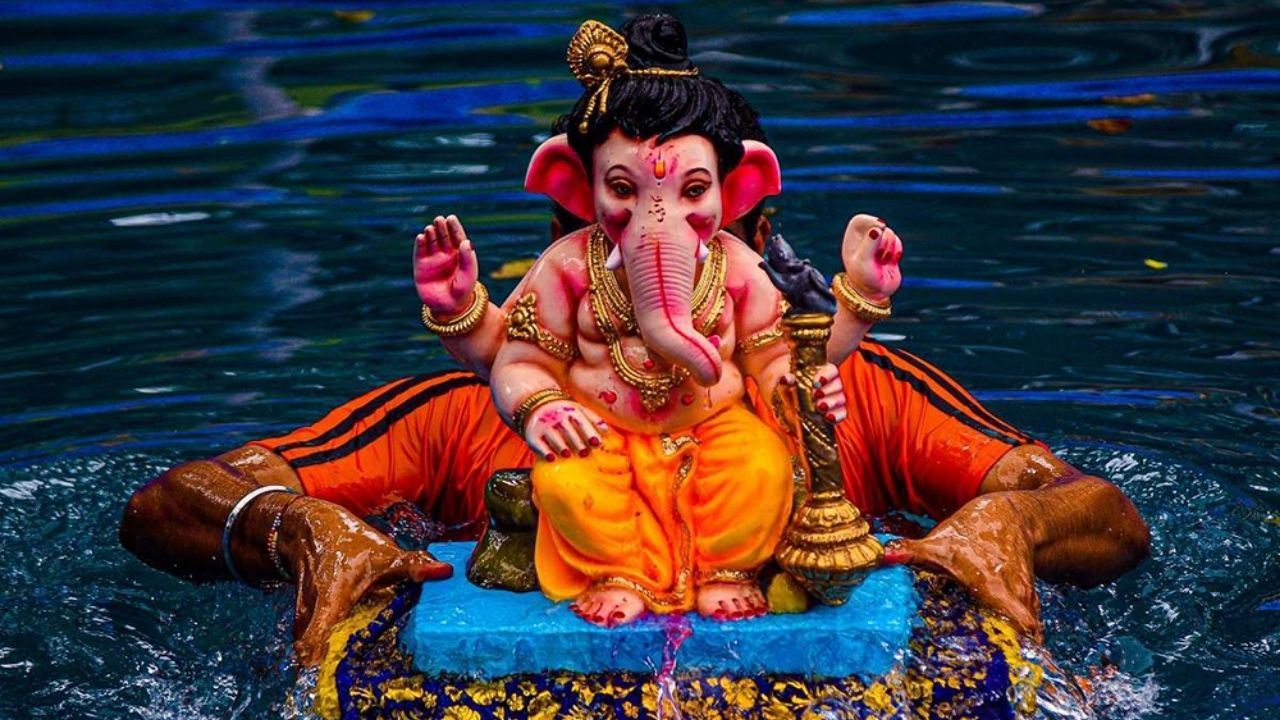 English
English

Lord Ganapati is the god of wisdom, prosperity and discretion. Any auspicious work begins with the worship of Ganeshji as it is believed that it removes all obstacles and the work is successful.

Ganesh Visarjan symbolizes the cycle of life and spiritual unity
New Delhi: Ganesh Utsav is moving towards its conclusion and the festival will conclude with Ganesh Visarjan on the day of Anant Chaturdashi on Saturday, 6 September. On this day, after worshiping Lord Ganapati, his idol is immersed in water. During the festival, Bappa is brought home with pomp and show, where he is worshiped and on the last day i.e. Anant Chaturdashi, his idol is immersed in a river, pond or any holy water body. Let us know why Ganesh Visarjan is done and what is its significance.
Ganesh Chaturthi 2025: Ganapati seated at 3000 feet under open sky; Click here to know history
Lord Ganapati is the god of wisdom, prosperity and discretion. Any auspicious work begins with the worship of Ganeshji as it is believed that it removes all obstacles and the work is successful. Worshiping Ganeshji gives relief from many problems like Vastu Dosh, Pitru Dosh and leads to progress in life. On Ganesh Chaturthi, his idol is brought and worshiped with pomp and show and ten days later, the immersion takes place on the day of Anant Chaturdashi.
According to the scriptures, the idol of Ganeshji is made of clay which dissolves in the Panchtatva after being immersed in water. It is a symbol of the unity of the soul with nature and the divine. According to astrology, the end of every auspicious work is as important as its beginning. Visarjan is not just a physical act but also an invitation to thank God and his return next year, which devotees express in the form of 'Ganpati Bappa Morya, next year you come soon'.
Ganesh Chaturthi Day 6: Ganpati Temple with rare 8th Mudra idol open for only 12 hours
Ganpati Visarjan is mentioned in Hindu scriptures. When we install the idol of Ganeshji in the house or pandal, it is called Aawahan, that is, calling God. After the puja, when the wishes are fulfilled, it is necessary to give a respectful farewell to the deity, which is called Udvasan. This farewell takes the form of immersion in water. This process also reflects the unstable and mortal nature of life that whatever comes, has to go one day.
According to a legend, Maharishi Vedvyas narrated the story of Mahabharata to Ganeshji for ten days, which Ganeshji wrote down. After ten days, when Mahabharata was completed, Vedvyasji touched Ganeshji and he was burning. After that Vedvyasji cooled him down by putting him in a nearby pond. This is why the tradition of immersion started, which provides coolness to Ganeshji.
No related posts found.
No related posts found.